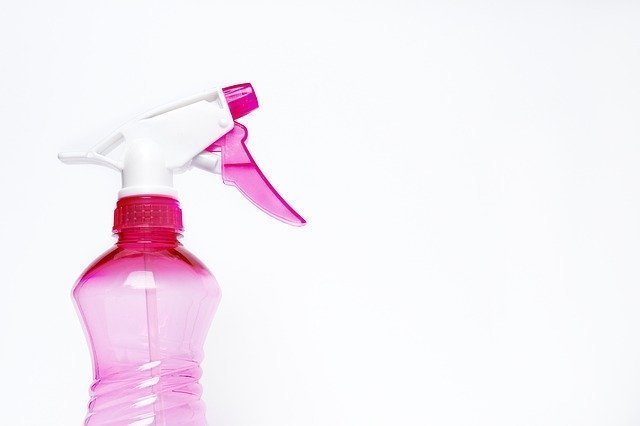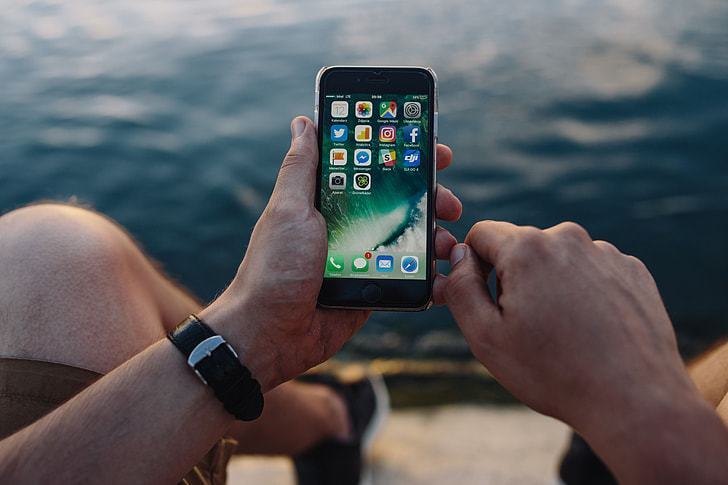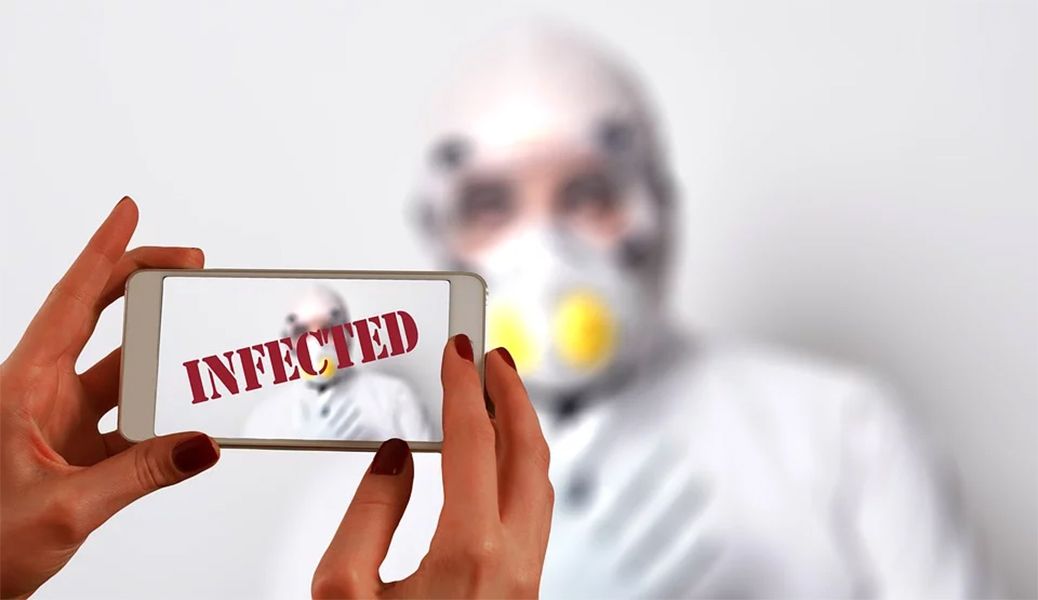If you look like the average American, you probably check your smartphone more than 50 times a day, as a Deloitte study from 2018 showed. And each time you do, your mobile device picks up more bacteria on your hands.
The University of Arizona found in 2012 that mobile phones contain 10 times more bacteria than a toilet seat, largely because they are typically cleaned more frequently.
As the new coronavirus continues to spread, the US Centers for Disease Control and Prevention (CDC) and the World Health Organization advise the general public to wash their hands frequently and disinfect frequently touched objects and surfaces.
It is also important to keep your phone clean. But cleaning can be tricky, as many common cleaning products could potentially damage your mobile device.
Here’s how you can safely clean your phone without damaging the display or internal components:
Avoid using alcohol, disinfectants or similar sprays.

It may be tempting to clean your phone screen with a little alcohol or a disinfectant wipe. But you may damage the screen of your device. “These phones have a coating that prevents the oil or grease from your hand from sticking to it,” says Jason Siciliano, vice president of protection for SquareTrade smartphones at Business Insider US. “Using alcohol or this type of solution directly on a phone, on its glass, can damage it”.
It’s the same coating that makes the liquid bead up on your phone’s screen and prevents fingerprints from getting on it,” Taylor Dixon, a disassembly engineer for the iFixit website, told Business Insider US, who offers a repair guide. Although the coating wears off over time, Dixon says the use of cleaning chemicals will only strip it off faster. This echoes the advice Apple and Samsung give on their support pages, which warn against using cleaning products.
Instead, use a microfibre cloth and moisten it lightly with soap and water if necessary.

Apple and Samsung state on their support pages that the best way to clean your phone is to wipe it with a cloth – preferably soft and lint-free. You can moisten the cloth with warm water and soap to get rid of any debris or substances that require more than just wiping.
Most modern smartphones are water-resistant, but you still need to be careful when exposing them to liquids. “You should always make sure that no liquid enters the phone through its entry points,” says Taylor Dixon. You should also unplug your device and turn it off before cleaning it, as Apple states on its website.
If you need to disinfect your smartphone, consider UV lamps to kill bacteria.
In this article’s we’re looking at the coronavirus and give you loads of information about coronavirus it’s symptoms, how it spread, how you can try and prevent it and also the surgical masks do they really work and loads more.
So the coronaviruses are a large family of viruses which cause a range of illnesses that start from a common cold which we’ve all pretty much had all the way up to more serious ones which has sars.
Now this corona virus is what we call a novel coronavirus so it’s a new strain that we’ve never actually seen in humans before corona viruses a zoonotic this means that they’re transmitted between animals and humans however, there are several corona viruses that only infect animals, but if they do cross over if they do infect humans for example the novel coronavirus we’re dealing with right now.
Coronavirus | What Is Coronavirus | Symptoms Of Coronavirus
This is what we call a spillover event now before we continue; please remember that this is a developing situation and every day. We’re learning more about corona virus so all the information is relevant and of today on this day right now but as we learn more as a scientific community to learn more all of this information can potentially change all the information and data is from the who NHS and public health, England however, this data can change with time as I’ve just explained so what i will do is I’ll leave some really useful links by the who and NHS all about corona viruses and these websites are constantly updated. Therefore, I would highly recommend everyone check them out.
So what are the symptoms of corona virus?
Well it can include any of the following a fever a runny nose a dry cough a sore throat and then it can lead onto shortness of breath and in some severe cases, patients will need hospital treatment. so how severe is it?
Well, it really depends at the moment we know that one in five cases can become severe leading to things like pneumonia or acute respiratory distress syndrome leaving some mechanical ventilation and in some circumstances it can even cause death now we currently know that the novel coronavirus has a mortality rate of 2% this means that 2% of people who have had the novel coronavirus have sadly died from it where it also means that 98% of people who have had the novel coronavirus have got better from it which is much less than that say for example sars that has a mortality rate of 10% or even EBOLA which has a mortality rate of 70% now is important to remember this is based on the current information that we have there are currently people in hospital receiving treatment for the corona virus so the number could change and it’s not an absolute certainty now in terms of treatments.
Unfortunately, there is no treatment currently for the corona virus. However, the symptoms can be treated. So each patient will be looked at individually depending on their symptoms, they will have different treatments for it also another piece of good news is they are currently working on a vaccine for the corona virus which is great news currently the risk of getting the illness in the UK is low and the NHS guidance is that any travelers returning from wuhan china or from the hubei province in the last 14 days should stay at home?
Stay indoors and avoid contact with other people and please contact NHS 111 and make them aware of your recent travel for those individuals if you do get any symptoms of corona virus that we spoke about earlier such as the fever sore throat short some breath please avoid other people stay indoors and contact NHS 111 or your doctor surgery for advice please don’t walk in just call them this also applies to anyone returning from any part of china apart from hong kong and macau so if you get symptoms of coronavirus please stay indoors avoid other people and call NHS 1 1 1 or you got to surgery please once again do not walk into your doctor surgery please just call and get more information and advice.
This is all to reduce the spread of the virus and also remember even if your symptoms are mild, please stay indoors and avoid spreading the virus so this means staying at home for at least 14 days after arriving from wuhan or the hubei province or if you have symptoms and you’ve come from any part of china you need to stay at home for at least 14 days. and this means you’re not gonna have to work don’t go to school don’t go to public places and obviously if you need food contact friends or family or delivery drivers to bring it to your house now this is the current guidance from the NHS.
However, it can change tomorrow. It can change this week. It can change next month so the best thing to do is to check the dedicated coronavirus website out that the nhs have made it has all the up-to-date information I’ll leave a link in the description below. So please check it out and also, please remember if you have been in contact with someone who has had a confirmed case of the novel coronavirus then please call and contact NHS one-on-one or your doctor.
So how is coronavirus spread?
Well we do not know exactly how it’s spread from person to person but similar virus is spread through cough droplets through close contact now close contact is being closed within 2 meters of someone who is infected for at least 15 minutes but there’s still lots of information that we don’t know so for example, how long does it take for the virus to spread?
What is the true incubation period so this is the period that you have the virus, but you don’t have any symptoms yet it’s thought to be one to two weeks, but we’re not sure of this yet and also can the virus be spread when you’re asymptomatic now the who recommends standard prevention technique to help reduce the spread.
Tip 1:
Wash your hands regularly throughout the day using soap or water wash it for at least 20 seconds. now if you have not seen the NHS video on how to do it properly it is a good video. Please check it out. it’s really useful also, please remember if you don’t have access to water or so you can always use an alcohol hand rub.
Tip 2:
Avoid touching your face as much as you can because our hands they carry so many germs and the way they get in is through your mucous membranes so through your eyes through your mouth through your nose that’s the way the infections get in so i know it’s easy to do when you’re thinking and you go into auto drive and you might touch your face but please try and avoid touching your face as much as you can.
Tip 3:
Cover your mouth and nose with a tissue when you cough or when you sneeze and throw it in the bin straight away the viruses can survive for about 15 minutes on the tissue which is why it’s so important you throw it in the bin straight away on other surfaces like door handles for example the viruses are unlikely to survive more than 24 hours
Tip 4:
Try to avoid close contact with anyone who is showing signs of a respiratory illness so if they are coughing if they are sneezing try to avoid contact with them and try to maintain a gap of at least two meters from them because this is a distance that’s been shown as sneeze or cough can travel
Tip 5:
If your feeling unwell stay at home even if it’s something mild like the common cold just stay at home and reduce the risk of spreading a virus that are the people and keep your community safe.
Tip 6:
If you use a public workspace, let’s say for example, here. We all use different rooms all the time so give it a quick wipe down the area that you’re going to be using to work it can make a significant difference.
Tip 7:
When you’re eating meat when you’re eating eggs make sure you’re cooking them thoroughly.5 of 6
Surgical facemasks :
The masks can help well i do know that virologists are skeptical about their effectiveness against airborne viruses but there is some evidence to show that they do help prevent hand-to-mouth transition, which we spoke about earlier with regards to mucous membranes however, routine surgical masks, but airborne viruses are not really effective the reason being that they are quite loose-fitting they have no air filter and also they leave your eyes exposed so remember the mucous membranes we spoke about earlier. That’s an exposed area.
The infections can get into you so the best advice i can give everyone is to maintain the hygiene tips that we spoke about earlier i really hope you find this video about coronavirus useful please remember that there is a lot of information that’s false on social media about corona virus so please always use a reputable source of information for health knowledge such as the NHS public health, England who i will be links to all of these in the description below and once again please remember that. this is a developing situation every day.
DISCLAIMER:
This article is for information only and should not be used for the diagnosis or treatment of medical conditions. We used all reasonable care in compiling the information but make no warranty as to its accuracy. Always consult a doctor or other healthcare professional for diagnosis and treatment of medical conditions.

Thanks for the article post.Really thank you! Great.